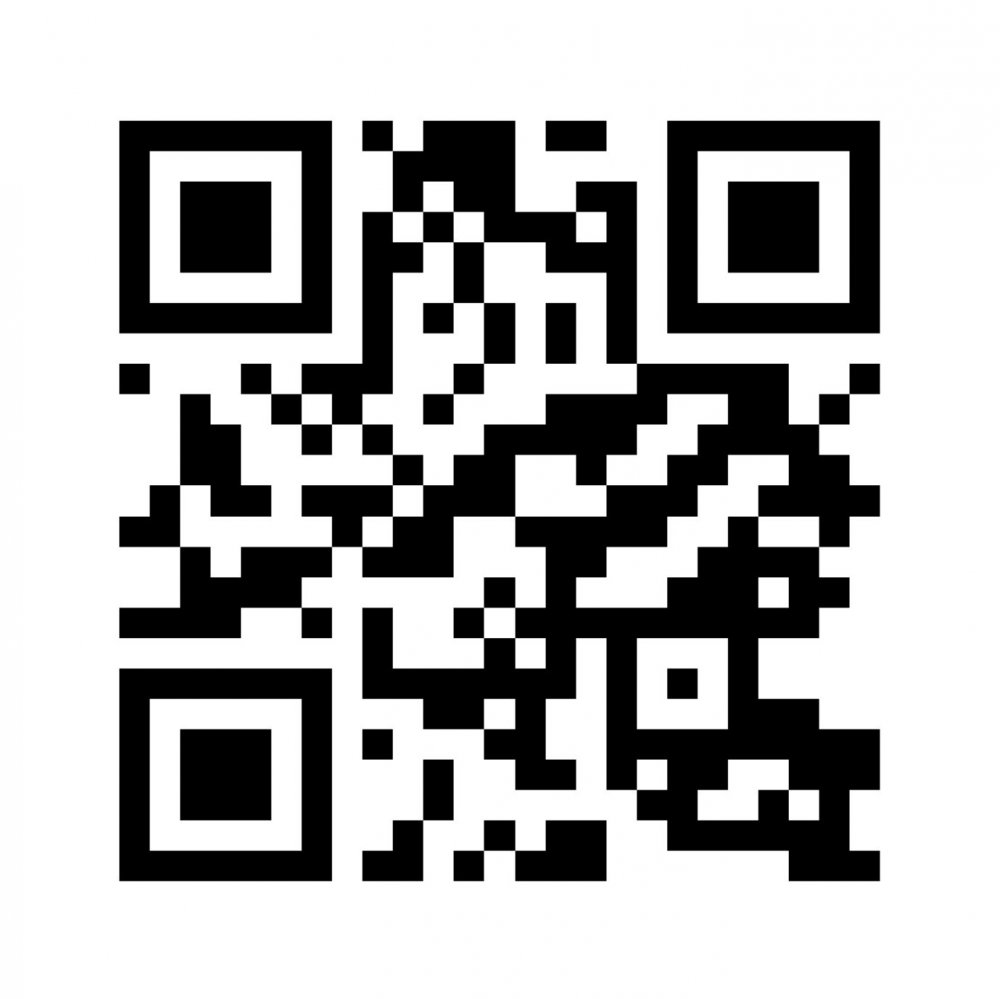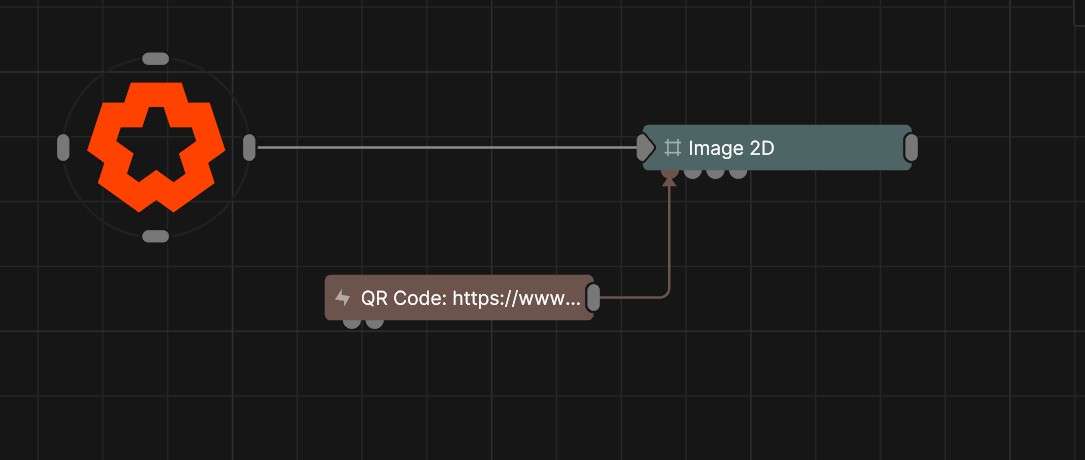QR Code
Updated: 2 Feb 2026
Generates a QR code image

Updated: 2 Feb 2026
Generates a QR code image

This node generates an image of a QR code from a given string. A QR code is simply an encoded string of text, and so are ideal as a quick link to a URL. The generated QR code is adaptive, and so will expand and contract based on the length of text added as it needs to.
Although most QR codes are predominately black and white, they do not have to be. A QR code can be any colour and can even include more than 2 different colours. The key takeaway is that the QR scanner is able to distinguish between foreground and background modules (the squares) in order to detect the pattern and decode the string contained within it.
This node can be connected to any node which accepts an image input.
These properties control the 3D transforms of the node. Transforms will generally be inherited by child nodes, although they can be ignored through the Inherit Transform Channels attributes.
Control the inheritance of the transforms from the parent.
These properties control the core behaviours of the node.
| Parameter | Details |
|---|---|
| Active | Enables or disables the effect. Disabling the effect means it will no longer compute, so disabling a node when not in use can improve performance. |
| Preview In Viewport |
Preview the generated image as an overlay in the viewport.
|
| Width | The resolution of the generated image horizontally. |
| Height | The resolution of the generated image vertically. |
| Update Time Mode |
How the generator updates with relation to the timecode.
|
| Text String | The string of text to encode in the QR code. |
| Error Correction Level |
The error correction level. A higher ECC level will yield a barcode that tolerates more damaged parts while preserving the payload data.
|
| Version Range Min | The minimum version range. Different versions have a different amount of modules. Eg. Version 1 has 21x21 modules and version 40 has 177x177 modules. |
| Version Range Max | The maximum version range. Different versions have a different amount of modules. Eg. Version 1 has 21x21 modules and version 40 has 177x177 modules. |
| Border (in Modules) | The size of the border around the modules within the QR code. |
These properties control how the generators are coloured and blended with other images.
| Parameter | Details |
|---|---|
| Colour | Change the colour of the generated image. |
| Blend Amount | The amount the generated image blends with the project, depending on the compositing mode chosen. |
| Blend Mode |
Choose how the image blends with the scene. See Blend Modes for details.
|
The properties control the time at which the node is active. See Timeline for editing time segments.
| Parameter | Details |
|---|---|
| Duration |
Control the duration of the node’s time segment.
|
| Node Time | The custom start and end time for the node. |
| Duration (Timecode) | The length of the node’s time segment (in time). |
| Duration (Frames) | The length of the node’s time segment (in frames). |
| Time Segment Enabled | Set whether the node’s time segment is enabled or not in the Timeline. |
| Name | Description | Typical Input |
|---|---|---|
| Colour Ramp | Specify a range of colours the generator can use through its gradient. | Colour Ramp |
| Transform Modifiers | Apply the transforms of another node to this node. | Null |
| Target Node | Modifiy the rotations of the node to always direct the z axis towards the input. | Null |
| Local Transform Override | Apply the transforms of another node to this node, relative to its parent. | Null |